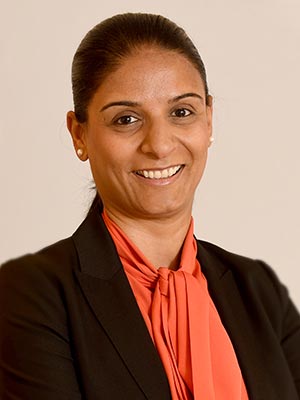Types of birth injuries to babies
There are many different types of injuries to babies that can happen before, during or after birth. This section covers some of the most common, but is not an exhaustive list, so our team will be happy to advise if you need to claim with regard to something else.
Cerebral palsy
Cerebral palsy is a condition that covers a wide range of symptoms stemming from an injury to a baby’s brain resulting in disorders in their movements. Children with cerebral palsy will often need extensive support, including ongoing professional care and home adaptions. They may also be unable to work in later life, so might require lifelong financial support.
Claiming compensation for cerebral palsy is essential to ensure a child has all of the support they need. This can give them the best quality of life and make sure they are financially secure for their entire life.
Birth injury claims resulting in cerebral palsy are often complex. Minton Morrill has a team of specialist medical negligence solicitors experienced in these types of cases and have secured very high settlements for children that have suffered from avoidable injuries.
You can learn more about how the condition is caused, different types of cerebral palsy and claiming compensation on our dedicated cerebral palsy claims page.
Erb’s palsy and other brachial plexus injuries
Brachial plexus injuries occur when the nerve fibres in a baby’s spine, neck and arms are excessively stretched during their delivery. This network of nerves is responsible for feeling and movement within the shoulder, arms, hands and fingers. If it is damaged, it can cause weakness and loss of movement/feeling, which can result in lifelong disability, especially without intensive physiotherapy.
Claiming compensation can help to ensure your child has access to the best rehabilitation care to minimise any long-term effects of a brachial plexus injury. It can also give them financial support if their injury later affects their ability to work or other aspects of their life.
Like cerebral palsy, brachial plexus medical negligence childbirth claims are often complicated. They are potentially high value claims because children with such injuries may require lifelong care and support.
Minton Morrill’s team of leading medical negligence lawyers have experience investigating whether the care provided was appropriate and, if not, obtaining damages for clients for medical negligence birth injuries.
You can learn more about the condition and claiming compensation on our dedicated Erb’s palsy claims page.
You can find out more about other types of brachial plexus injuries including Klumpke’s palsy, neuroma and neurapraxia on our brachial plexus injuries page.
Read more about birth negligence claims we have won for clients.
Stillbirth
Losing a baby is one of the hardest things a family can go through, especially if you believe mistakes were made before or during the birth. While compensation cannot undo what has happened, it can ensure you have the support you and your family need during this difficult time.
Where it can be shown that a stillbirth was caused by negligent medical care, then you will be able to pursue compensation. This can help to pay for counselling as well as giving you financial security if you need to take time off work. A claim can also expose healthcare failings, and force investigations into process flaws; and ultimately help to stop this happening to anyone else.
Our birth injury solicitors are experienced with supporting families who decide to pursue a claim following a stillbirth. We are sensitive to just how distressing the loss of a baby is, so will treat you with dignity and kindness, while ensuring your claim is vigorously pursued.
Types of birth injuries to mothers
Birth injuries sustained by mothers can be varied. This section deals with the most common injuries but not all of them. Please contact a birth injury lawyer from our team who will sensitively look at your concerns.
Tears
Tears or lacerations can often be sustained during childbirth. They can be very painful and traumatic, with a long recovery time. In some cases, there can be significant permanent scarring and ongoing pain, as well as other issues such as difficulty controlling the bowels.
These tears are commonly but not always to the mother’s perineum. They range from 1st to 4th degree in their severity:
- 1st degree: superficial and small tear of skin and surrounding tissue. Will heal on their own.
- 2nd degree: deeper tear to the muscle. Require stitches in order to heal.
- 3rd degree: more serious tear of tissue, skin and muscle extending to anal sphincter.
- 4th degree: the most serious tear that goes right through the anal sphincter.
3rd and 4th degree tears are the most serious and require careful surgical repair.
The standard of surgical repair (including the competency of the doctor performing it) is often examined in medical negligence claims of this nature, as is the manner in which the tear was sustained. For example, whether an episiotomy should have been performed to help the mother deliver her baby without tearing and, when an episiotomy is performed (usually prior to a forceps delivery), whether this was done competently.
Our team of experts have secured substantial compensation for mothers suffering serious tear injuries and we have a number of on-going cases with compensation expected in excess of £350,000. Our settled cases of this nature have also secured compensation values of £275,000 and £625,000 for specific individuals.
Pre-eclampsia
Pre-eclampsia causes a marked increase in blood pressure during pregnancy and can cause damage to a mother’s internal organs (and the baby) if not promptly treated. It is thought to affect 10% of mothers and sometimes presents with symptoms like shortness of breath, swelling, nausea, headaches and blurred vision.
If pre-eclampsia is suspected it can be diagnosed by checking blood pressure levels and taking urine samples (urine will be high in protein with the condition). These tests should be carried out in the antenatal period and the labour, especially if there is suspicion of pre-eclampsia.
A caesarean section may be offered in such circumstances. Failure to diagnose the condition can lead to fatal consequences and/or severe lifelong injuries to the mother and baby.
Maternal deaths
When a mother dies during or shortly after childbirth, it is described as a maternal or wrongful death. This is very rare (only 10 out of every 100,000 women in the UK) but sadly does happen.
Haemorrhages (blood-loss), pre-eclampsia (explained above), infection and surgical and anaesthetic mistakes are the more common causes but it is, of course, important to find out the exact cause of a loved one’s death.
In these cases, if there is negligent care, an Inquest before a Coroner is likely to be heard and there may be grounds to pursue a fatal medical negligence claim.
Wrongful birth
Wrongful birth is a Court derived description of the delicate situation when a baby is born either with a disability that should have been identified through appropriate tests in the antenatal period or as a result of a parent’s failed sterilisation or vasectomy resulting in an unintended pregnancy.
The failure to provide the baby’s parents with information about a disability and not allowing them the opportunity to decide whether or not to continue with the pregnancy is key. Examples include conditions routinely screened for such as Downs Syndrome and Spina Bifida. If this type of claim can be established, significant compensation for the child’s future treatment needs will be pursued.
When a healthy baby is born as a result of sub-standard sterilisation or vasectomy, the award of damages is limited to compensation to the parents for the distress of having an unwanted child (and potentially of undergoing a termination of the pregnancy) together with any financial losses incurred as a result, such as loss of earnings. The cost of raising a healthy child cannot be pursued.
How do you make a birth injury claim?
Find out if you have grounds for a claim
The first step when making a claim is to contact a childbirth injury lawyer for a consultation and assessment on whether your claim might be successful. If your solicitor believes you could be successful, they will guide you through the process of making a birth injury claim.
Funding your birth injury claim
We support our clients; including children with severe neurological brain injuries sustained at birth, as well other birth injury claims, affecting children and mothers, typically through competitive No Win, No Fee agreements. Learn more about how funding for medical negligence claims works.
Gathering evidence
To support a claim, our birth injury solicitors will gather a range of evidence, including medical records, witness statements and opinions from independent medical experts. They must do this in order to show that medical negligence occurred in relation to childbirth. This helps to make sure your case is as strong as possible and that you have the best chance of securing maximum compensation.
Working out how much compensation may be owed
A key part of the process is calculating how much birth injury compensation you or your child may be entitled to. This is referred to as ‘assessing quantum of damages’ or ‘assessing quantum’.
Having the right expert support is essential here as gathering all the necessary information and correctly working out the impact of a birth injury can make a huge difference to the amount you may receive. This is one area where our team particularly excels.
Settlement negotiations
In the vast majority of cases, it is possible to negotiate a settlement for a birth injury claim. This means avoiding the stress of court hearings and securing compensation faster, with lower legal costs.
Court proceedings
In those rare cases where an out-of-court settlement cannot be agreed, it may be necessary to pursue compensation for a birth injury through the courts. Should this be the case, we will provide close, personal support, making the process as easy as possible on you, while also making sure you are robustly represented.
To arrange a free consultation with our birth injury claims specialists, please call 0113 245 8549 or use our simple online enquiry form and we will get back to you within 48 hours.







